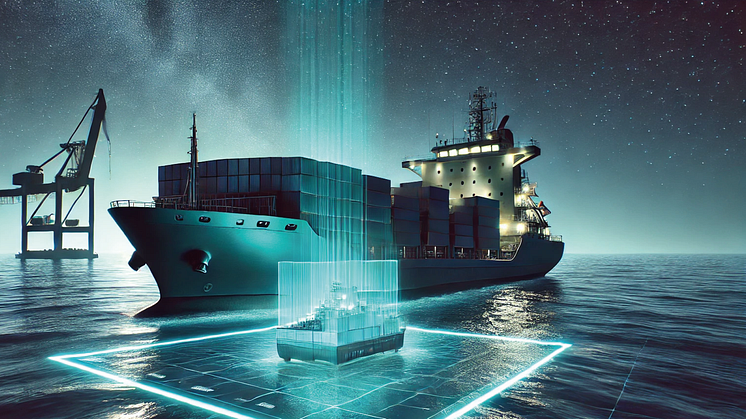
News -
Cetasol's Innovative Digitalization Project Support Marine Sustainability
The maritime industry has encountered challenges in embracing digitalization to advance sustainability due to high costs, limited value, and scalability issues. Cetasol is embarking on a new digitalization project aimed at addressing these obstacles.
Presently, two primary solutions for maritime operations exist, one for larger cargo and the other focusing on data visualization. However, these solutions are constrained by vessel size and available features. Given the industry's substantial contribution to global CO2 emissions, the integration of digital solutions and recognition of technology's potential value is critical. In response to these challenges, Cetasol has initiated a project to develop a solution applicable to all vessel types. The project involves partnerships with various stakeholders, including CAISR and RISE, and adopts an innovative approach by deploying data-based tools using digital twin models developed by Cetasol.
Project Objective:
The initiative aims to demonstrate and validate a digitalization solution using data-based digital twins for commercial marine operations in collaboration with industry stakeholders. It will underscore the potential use of digital twin models in achieving long-term emission reductions through the installation of electrical or alternative fuel drivelines and predictive maintenance. The project encompasses model- and simulation-driven development and optimization, the use of digital twins, edge computing, and cloud technology, and data-driven development for secure data exchange between processes and stakeholders. The goal is to achieve related objectives within the 2030 agenda.
By utilizing physics-informed adaptive digital twin modeling technology, Cetasol aims to connect all industry stakeholders, including suppliers, operational owners, ship owners, shipyards, research institutes, and OEMs, while minimizing or eliminating the need for sensors and automating model development for each vessel.
Engagement of Stakeholders:
The project brings together Swedish stakeholders from the maritime industry to promote sustainability, aligning with the International Maritime Organization's (IMO) regulations and the Global Sustainable Development Goals. In 2021, the IMO set a target to decrease CO2 emissions from marine transport by 40% by 2030 and by 70% by 2050. Sweden has set more ambitious goals of achieving a 70% reduction by 2030 and striving for zero emissions by 2045. Swedish stakeholders are collaborating on national and international business opportunities to introduce Swedish sustainable technologies to the global market. This collaborative project, involving Cetasol and other stakeholders, will be showcased at the national level, highlighting Sweden's leadership in digitalization and its heritage in the marine sector.
Other participating stakeholders in this project include CAISR and RISE as research partners, Quoakka as the development partner, Trafikverket as the Operational Owner, Erik Thun and Stena Line as Ship Owners, and Profjord as the Design Company. The results of the project will be disseminated by all partners through various channels. Cetasol will share the outcomes through workshops, events, and presentations to potential customers. Academic partners such as CAISR and RISE are expected to share their knowledge through academic publications and networking channels, for example, the Swedish Maritime Forum (SMTF) by RISE. All other industrial partners have established relations in the Swedish market, and the outcome is expected to be disseminated through their respective channels.
In Conclusion:
The project represents a milestone in advanced digitalization within the marine sector, with the potential for scalability and the ability to connect multiple stakeholders. This innovative approach entails a true multi-actor collaboration for exchanging models (digital twin) for various purposes, rather than data. The involved parties believe that a data-based approach can provide a powerful and secure tool for implementing digital solutions in the marine industry, offering a new dimension to the industry's technological landscape.

